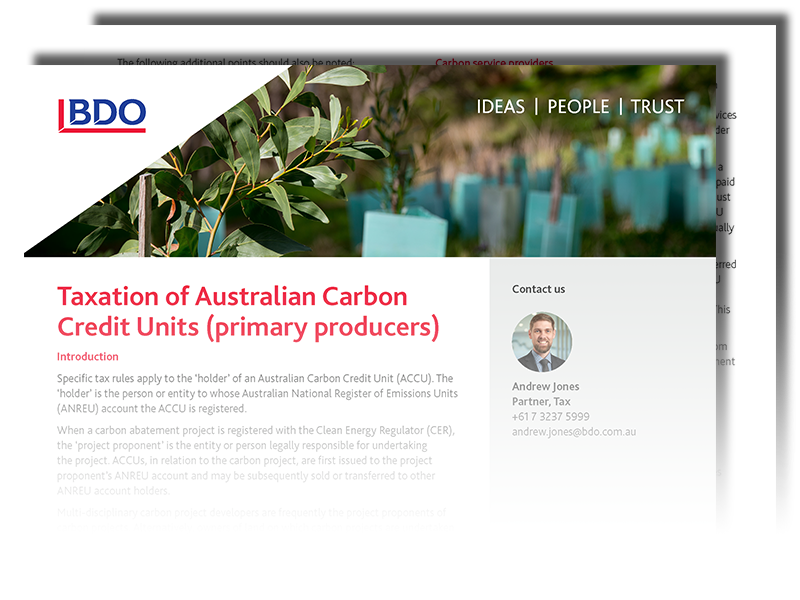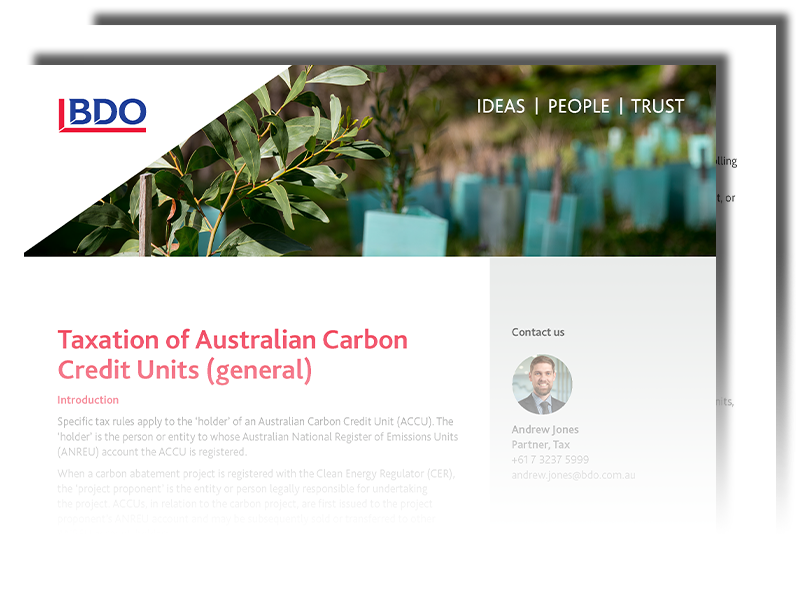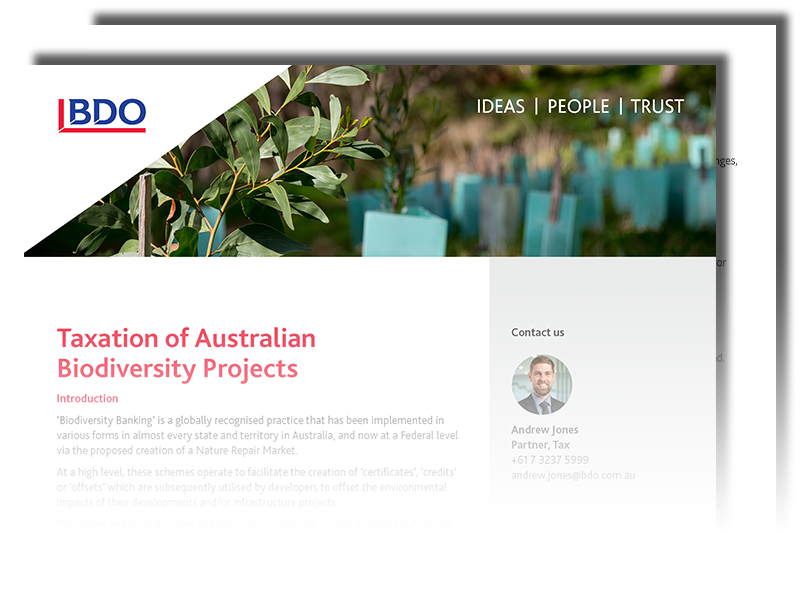
Andrew Jones
‘Carbon farming’ primarily describes the use of land to sequester carbon in vegetation and soils. It also extends towards the reduction of emissions and alternative land and animal management practices. The primary aim of carbon farming is to create a reduction of carbon from the atmosphere, and it is important to acknowledge that it is not mandatory to be a farmer in order to ‘farm carbon’.
Beyond the obvious benefits to the environment, there can also be business benefits for the organisation or individual taxpayers, by participating in activities such as carbon credits, biodiversity banking, and more.
Here we share resources designed to inform and support primary producers in understanding the implications of these opportunities.

Taxpayers carrying on a primary production business should know the specific tax rules that apply to Australian Carbon Credit Units, or ACCUs.

General taxpayers who are holders of ACCUs should know Australia’s specific tax rules for their treatment.

‘Biodiversity Banking’ is a globally recognised practice that offsets the environmental impacts of developments and infrastructure projects.
An overview of the carbon footprint, what it does, and how to reduce it – including an explanation of offsetting and insetting.
Subscribe to receive insights from BDO to be the first to hear about new developments in carbon farming. Don't miss when new factsheets are released, subscribe now.

Andrew Jones

Aletta Boshoff

Peter Toll

Brett Spicer

Dylan Byrne
